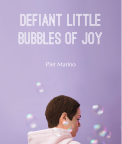Read Like It’s Real Life
Probably there have been a hundred eulogies written about children’s book evangelist Frank Hodge since his passing a few years ago, but in this time of isolation and dread, I’ve been digging back in my memory for something to write about other than the virus. I’ve never liked the term heroes for its misaligned definitions and misapplied worship. I prefer mentors. I’ve had a very few in my lifetime, and feel lucky to have had that many. Since retiring, I’ve concluded that my professional life would have been rather bleak if it weren’t for Frank Hodge teaching Children’s Lit at SUNY Albany nearly one hundred years ago when I was a graduate student there.
Some people might assume that in order to be a good teacher, one needs to be an expert in the subject; certainly politicians from either side of the aisle are convinced that a solid teacher is one who’s survived a battery (or battering) of rigid assessments and standardized testing. But Frank taught us all those years ago that if reading was the foundation of all learning, we ought to focus on getting kids thrilled with it. That’s a philosophy which I assume everyone who took his course (it’s the only one he taught) took away. It meant not stabbing to death the possibility of loving reading with basal readers and workbooks and timed tests. Frank taught us neophytes that we should at least attempt to get kids to see reading as fascinating, enticing, engrossing, disturbing…in a word, magical. Get them reading the same way adults get reading, by providing them with books that thrill them. That might mean the first choice isn’t working out, so keep choosing. Read like it’s real life.
He believed that all instruction could center on real reading: vocabulary-building, basic and multipart comprehension, inferential thinking. Frank advocated forfeiting basal readers and the writing-for-hire within them. Real books, long or short, difficult or easy. If the students were interested in a topic, they would read something hard. I took his suggestion of starting each class with free reading — bring in any book you want (within reason). This revealed to me what was actually going on with young readers. Middle schoolers, even some who were not behaving or testing with promise, were tackling stories that were a hundred miles beyond what you find in a standardized reading test passage about drainage systems in New York State. The sheer size of some of these self-chosen books impressed me, huge sci fi/futuristic or horror novels that would have taken me three years to read. And kids peeled through them. Because of Frank I never once used a textbook in the freshman comp classes I later taught, because if I myself wasn’t going to read a manual about how to write, I couldn’t expect students to go for one. Instead I used real literature — memoirs by writers, or their fiction.
Frank’s class was very entertaining. Anyone who’s gone to college for even a semester knows how unlikely it is to find a professor who’s able to get you to laugh as well as think. Through his stories it was evident that his life was full-to-brimming. His unobtrusive presence attracted fans from all over the world. He was friends with any number of celebrities who sought him out and not vice-versa. (He was once cast in a Broadway musical even though he couldn’t sing.) If you were lucky (and you’re old enough), you at least once paid a visit to HodgePodge Books, Frank’s bookstore on Lark Street. It was literally a bookstore, since he only stocked books. There were no toys or pop-up books, no gimmicks or prizes to get kids to read.
And within that store! I’ll never forget the titles he introduced us to. They were not all that new, either, but new to me. In my early twenties, I was exploring a different literary world, absorbed as I should have been as a child in a cache of great stories. Too many titles and authors to list here, but they should be household names: Natalie Babbitt and Katherine Patterson, William Sleator, Robert Cormier. Even the not-so-great writers were worth a read for their attempt at relating the adolescent mind from a teenage perspective.
It’s not too dramatic for me to believe Frank’s philosophy actually may have saved me my first year of teaching. My first job was teaching eighth grade in a tiny school in Vermont. Are there any more ominous words than ‘first job teaching eighth grade’? The word ‘feral’ comes to mind. One class in particular had boys so wicked that I found out they spent their lunch periods planning what they were going to do to me during class later that afternoon. My lessons were mostly exercises in futility. But one idea actually stuck: At the end of each period I would read aloud to them. At first they reacted with the contempt they had for every activity I proposed, but I kept with it. And they calmed down, started listening. They wanted to hear a story even if they had theretofore despised the sound of my voice. The book was Bridge to Terabithia, and these wolf-children became more like puppies.
During one period, when I was getting toward the end of the book, I stopped reading just before the bell. Jess’s father was telling him that his best friend, Leslie, was dead. The bell rang. The class erupted in a different kind of revolt than I was used to. They were not leaving until they found out what happened to her.
Hopefully they learned something that year, besides battle strategies. Possibly the lovely power of story.
